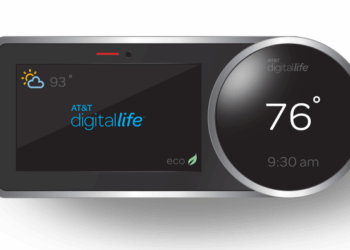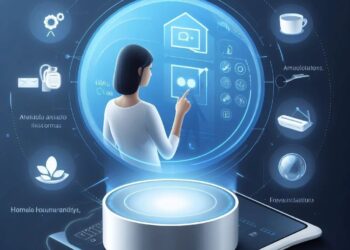Exploring the influence of social media on modern lifestyles reveals a fascinating interplay between technology and human behavior. This topic delves into the profound effects of social media on our daily routines, relationships, and self-perception. Let's embark on a journey to unravel the complexities of this digital phenomenon.
As we navigate through the various aspects of social media's impact, we uncover both the positive and negative repercussions it has on how we live, interact, and perceive ourselves in the digital age.
Overview of Social Media in Modern Lifestyles
Social media has become an integral part of modern lifestyles, shaping the way people communicate, interact, and consume information in today's society. With the rise of technology and the internet, social media platforms have evolved to cater to various needs and preferences of users.
Evolution of Social Media Platforms
- Social media platforms have witnessed a significant evolution since the early days of platforms like Myspace and Friendster.
- The introduction of Facebook in 2004 marked a turning point in social media, leading to the creation of numerous other platforms like Twitter, Instagram, and Snapchat.
- These platforms have continued to innovate and adapt to changing trends, incorporating features such as live streaming, stories, and augmented reality to enhance user experience.
Popular Social Media Platforms and Their Impact
- Facebook remains one of the most widely used social media platforms, connecting billions of users worldwide and serving as a hub for social networking, news sharing, and online communities.
- Instagram, known for its visual content, has transformed the way people share photos and videos, influencing trends in fashion, travel, and lifestyle.
- Twitter has become a popular platform for real-time updates, news dissemination, and public discourse, enabling users to engage in conversations on various topics.
- YouTube has revolutionized the way people consume video content, giving rise to a new generation of content creators and influencers.
Positive Effects of Social Media on Modern Lifestyles
Social media platforms have significantly impacted modern lifestyles in various positive ways. They have revolutionized the way people communicate, connect, and share information on a global scale.
Facilitated Communication and Connections
Social media has made it easier for individuals to stay in touch with friends, family, and acquaintances regardless of geographical barriers. Platforms like Facebook, Twitter, and Instagram enable real-time communication through messages, comments, and video calls. This instant connectivity has strengthened relationships and fostered a sense of community among users.
Sharing of Information and Ideas on a Global Scale
One of the most profound impacts of social media is its ability to disseminate information and ideas rapidly to a global audience. From news updates to viral trends, platforms like Twitter and TikTok have the power to make content go viral within minutes.
This has democratized the sharing of knowledge and diverse perspectives, contributing to a more informed and interconnected society.
Empowerment of Individuals and Communities
Social media has empowered individuals and communities by providing a platform for self-expression, advocacy, and activism. Users can raise awareness about important causes, organize social movements, and amplify their voices on issues that matter to them. This empowerment has led to positive social change and increased accountability among institutions and authorities.
Negative Effects of Social Media on Modern Lifestyles
Social media, while offering numerous benefits, also presents a range of negative impacts on modern lifestyles, particularly in relation to mental health and well-being, cyberbullying, and social media addiction.
Impact on Mental Health and Well-being
Social media platforms can have a detrimental effect on individuals' mental health and well-being. The constant exposure to curated and often idealized representations of others' lives can lead to feelings of inadequacy, comparison, and low self-esteem. This can contribute to increased levels of anxiety, depression, and even feelings of loneliness among users.
Prevalence of Cyberbullying
Cyberbullying has become a significant issue in the digital age, with social media platforms providing a platform for individuals to engage in harmful behavior towards others. The anonymity and perceived distance afforded by online interactions can embolden individuals to engage in bullying behavior, causing serious emotional distress and psychological harm to those targeted.
Social Media Addiction and Consequences
Social media addiction, characterized by excessive and compulsive use of social media platforms, can have serious consequences on individuals' lives. This addiction can lead to decreased productivity, disrupted sleep patterns, and a neglect of real-life relationships. Moreover, the constant need for validation and approval from online interactions can further perpetuate feelings of insecurity and dependency on social media for self-worth.
Influence of Social Media on Personal Relationships
Social media has undeniably revolutionized the way people interact and communicate in their personal relationships. From shaping romantic relationships to influencing friendships, social media plays a significant role in how individuals connect with each other.
Impact on Communication and Interaction
Social media platforms have made it easier for individuals to stay in touch with their loved ones, regardless of physical distance. Instant messaging, video calls, and social networking sites enable people to communicate in real-time, fostering closer connections.
- Social media allows for constant communication, enabling individuals to share updates, thoughts, and emotions instantly.
- Platforms like Facebook and Instagram provide avenues for public displays of affection, showcasing relationships to a wider audience.
- However, the dependence on social media for communication can sometimes lead to misunderstandings or misinterpretations due to the lack of non-verbal cues.
Role in Shaping Relationships
Social media has a profound impact on the formation and maintenance of romantic relationships and friendships. It influences how individuals perceive each other and navigate the dynamics of their relationships.
- Social media profiles often serve as a curated version of individuals, shaping others' perceptions based on posts, photos, and interactions.
- Platforms like Tinder and Bumble have transformed the dating scene, allowing individuals to connect based on shared interests and preferences.
- On the flip side, social media can create unrealistic expectations in relationships, leading to comparisons and insecurities.
Impact on Trust, Privacy, and Boundaries
Social media has blurred the lines between personal and public spaces, impacting the levels of trust, privacy, and boundaries in relationships. It raises concerns about oversharing, surveillance, and digital boundaries.
- Sharing intimate details or relationship milestones on social media can affect trust and privacy, as it exposes personal information to a wider audience.
- The rise of social media surveillance in relationships can lead to feelings of jealousy, insecurity, and mistrust.
- Setting boundaries on social media usage within relationships becomes crucial to maintain a healthy balance between online and offline interactions.
Social Media and Work Life
Social media has become an integral part of our daily lives, including our professional endeavors. It has significantly impacted the way we network, develop our careers, and manage the boundaries between work and personal life.
Influence on Professional Networking and Career Development
- Social media platforms like LinkedIn have revolutionized professional networking, allowing individuals to connect with industry peers, potential employers, and clients.
- Through social media, professionals can showcase their skills, achievements, and expertise, enhancing their visibility and attracting career opportunities.
- Networking on social media can lead to collaborations, mentorships, and career advancements that may not have been possible through traditional means.
Benefits and Challenges of Using Social Media in the Workplace
-
Social media in the workplace can improve communication, collaboration, and knowledge sharing among employees, leading to increased productivity and innovation.
- However, excessive use of social media at work can be a distraction, affecting focus and performance.
- Organizations must establish clear policies on social media usage to balance its benefits and mitigate potential risks such as data breaches, reputational damage, and conflicts among employees.
Blurring the Lines Between Work and Personal Life
- Social media blurs the boundaries between work and personal life, as professionals often use the same platforms for both professional networking and personal connections.
- This can lead to challenges in maintaining work-life balance, as individuals may feel pressured to be constantly available and active on social media, even outside of work hours.
- Employers need to recognize the impact of social media on their employees' well-being and productivity and support initiatives that promote a healthy separation between work and personal life.
Social Media and Self-Image
Social media has a significant impact on body image and self-esteem, as individuals are constantly exposed to curated images of perfection on platforms like Instagram and Facebook. This culture of comparison and perfectionism can lead to feelings of inadequacy and low self-worth.
Impact on Body Image
Social media often promotes unrealistic beauty standards, leading individuals to compare themselves to heavily edited and filtered images. This can result in body dissatisfaction and the development of unhealthy behaviors like extreme dieting or excessive exercise.
Culture of Comparison and Perfectionism
The constant exposure to idealized versions of reality on social media can create a culture of comparison where individuals feel pressured to present themselves in a certain way. This can contribute to feelings of insecurity and the need to constantly seek validation from others.
Strategies for Maintaining a Healthy Self-Image
It is essential to recognize the unrealistic nature of social media and the curated images that are presented. Building self-awareness and practicing self-compassion can help individuals cultivate a healthy self-image despite the pressures of social media. Additionally, limiting time spent on social media, curating a positive feed, and seeking support from friends and family can also promote a positive self-image.
Final Review
In conclusion, the effect of social media on modern lifestyles is a multifaceted phenomenon that continues to shape our society in profound ways. From altering the dynamics of personal relationships to influencing our work life and self-image, social media's presence is undeniable.
As we strive to strike a balance between the benefits and challenges it brings, one thing remains clear - our interactions with social media will continue to evolve and redefine our way of life.
Quick FAQs
How does social media affect mental health?
Social media can impact mental health by increasing feelings of anxiety, depression, and loneliness due to factors like cyberbullying, social comparison, and information overload.
Can social media addiction be treated?
Yes, social media addiction can be treated through strategies such as setting time limits, seeking professional help, and engaging in offline activities to reduce dependency.
Does social media have a positive impact on self-esteem?
Social media can have both positive and negative effects on self-esteem. While it can provide validation and support, it also fosters a culture of comparison that may lead to feelings of inadequacy.
How does social media influence work-life balance?
Social media can blur the lines between work and personal life, making it challenging to disconnect from work-related communication outside of traditional office hours.








